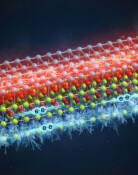No more delay in ruling on Pres. Yoon’s impeachment
No more delay in ruling on Pres. Yoon’s impeachment
Posted March. 25, 2025 07:31,
Updated March. 25, 2025 07:31
On March 24, the Constitutional Court dismissed the impeachment motion against Prime Minister Han Duck-soo, with five justices voting for dismissal, two for rejection on procedural grounds, and one in favor of impeachment. The court ruled that while the National Assembly was within its rights to pass the impeachment motion against Han, who was then acting president, he had not committed any unconstitutional or unlawful act warranting removal from office. In light of this, calls are growing louder for the court to expedite its ruling on the core issue—the impeachment trial of President Yoon Suk Yeol over the December 3 martial law crisis. Despite previously stating it would give this case the “highest priority,” the court has yet even to schedule a verdict, fueling deepening national division and social unrest.
Following the conclusion of oral arguments on February 25, many expected a ruling by mid-March. This expectation was based on precedents from the impeachments of former Presidents Roh Moo-hyun and Park Geun-hye, both of which were decided within two weeks of closing arguments. However, nearly a month has passed with no indication of when a decision will be announced. Notably, the court’s ruling in Han’s case avoided addressing several overlapping constitutional questions that also apply to President Yoon’s case—such as whether the declaration of martial law was unconstitutional or whether charges related to insurrection were valid grounds for impeachment. As a result, the notion that Han’s ruling might offer a preview of the outcome for Yoon has proven misguided.
In the meantime, massive pro- and anti-impeachment rallies are erupting across the country, from Gwanghwamun to Yeouido and beyond. Near the Constitutional Court itself, tensions are escalating, with shouting matches and even physical altercations between Yoon supporters demanding his reinstatement and opponents calling for his removal. Additional signs of unrest include a planned tractor protest by the Korean Peasants League and threatening remarks directed at justices by far-right YouTubers. Political leaders from both camps are further inflaming the situation with statements like “the nation will collapse if impeachment is dismissed” and “this is a war against anti-state forces,” exacerbating national polarization.
Over the course of 11 oral arguments, the court has heard testimony from 16 individuals involved in the martial law case and accepted investigative reports as admissible evidence. This indicates that the justices now have ample material to reach a conclusion. It has also been over 100 days since the impeachment case against President Yoon was filed. The longer the court delays its decision, the more divided the nation becomes—and the greater the suspicion grows that the court is acting under political pressure. The graver and more sensitive the matter, the more imperative it is for the court to render a swift and impartial judgment based strictly on the Constitution, law, and evidence. There is no longer any justification for further delay. Nor should there be.







